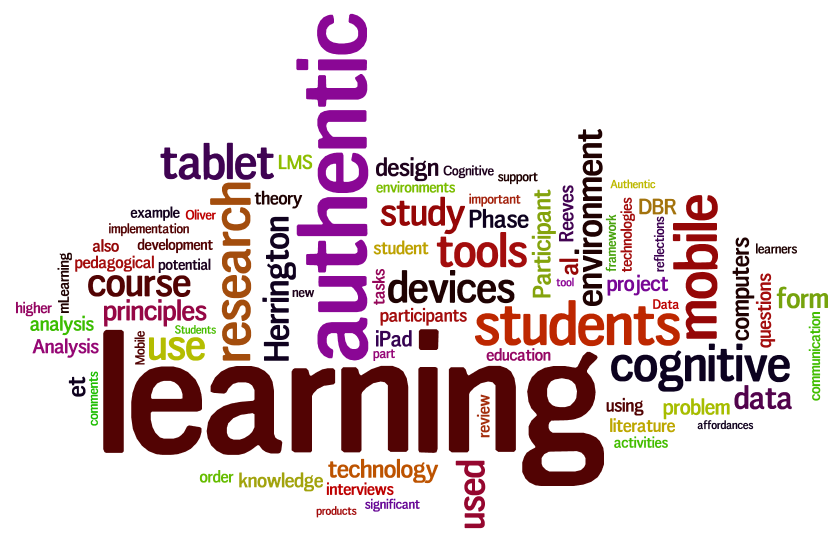James Oldfield
Design principles for a tablet supported authentic learning environment
Abstract
The
overall aim of the study is to explore how tablet computers can be used
as cognitive tools to support and enhance learning in an authentic
learning environment.
This
research is intended to identify successful methods for integrating
mobile learning methods in an authentic learning environment. A
design-based research approach (Reeves, 2006) will be used to develop,
iteratively test and improve the design principles in an academically
rigorous manner. Students should benefit from this research as they
should be more engaged in a simulated real world learning environment
enhanced through the use of cognitive tools (iPads). An authentic
context will be maintained throughout the course as all students will be
operating as ‘employees’ in a fictitious company. All
students in the class are allocated an iPad that they can use for the
whole semester (regardless of their involvement in the study). They are
encouraged to use it personally as well as for this class and others. In
addition to this, the teaching plan implemented for this research
involves free iBooks in place of an expensive textbook. Students will
therefore save money because of the project.
The
results of this research should provide a blueprint of design
principles for mobile authentic learning to the wider education
community. Other teachers can benefit from this research as they will
have guidance on how to create their own mobile authentic learning
environment.

Publications
Oldfield, J., & Herrington, J. (2012). Mobilising authentic learning: Understanding the educational affordances of the iPad. In: In M. Brown, M. Hartnett & T. Stewart (Eds.), Future challenges, sustainable futures. Proceedings ascilite 2012 (pp.723-727). Wellington, NZ: ascilite.